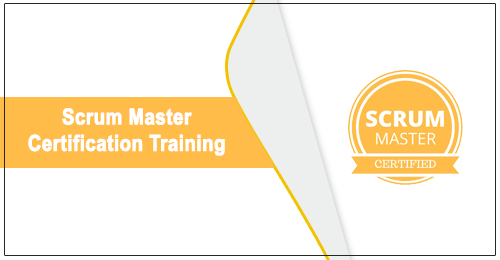Scrum Master Certification Training

Introduction: This chapter describes the purpose and framework of the SBOK™ Guide.
Overview of Agile: This chapter provides an overview of Agile which includes Agile Manifesto; Agile Principles; What has Changed with Agile; Declaration of Interdependence; and Agile Methods—Lean Kanban, Extreme Programming, Crystal Methods, Dynamic Systems Development Method, Feature Driven Development, Test Driven Development, Adaptive Software Development, Agile Unified Process, and Domain Driven Development.
Scrum Overview: This chapter provides an introduction to the key concepts of Scrum. It contains a summary of Scrum principles, aspects, and processes.
Scrum Roles (Organization Aspect): This chapter talks about role guides; the core and non-core roles associated with a Scrum project; Scrum in projects, programs, and portfolio; and responsibilities relevant to the Organization aspect.
Initiate: The Initiate phase includes processes related to initiation of a project—Create Project Vision; Identify Scrum Master and Stakeholder(s); Form Scrum Team; Develop Epic(s); Create Prioritized Product Backlog; and Conduct Release Planning.
Plan & Estimate: The Plan and Estimate phase consists of processes related to planning and estimating tasks which include Create User Stories; Approve, Estimate and Commit User Stories; Create Tasks; Estimate Tasks; and Create Sprint Backlog.
Implement: The Implement phase consists of processes related to execution of tasks and creation of a project’s product. These processes include Create Deliverables; Conduct Daily Standup; and Groom Prioritized Product Backlog.
Review and Retrospect: The Review and Retrospect phase is concerned with reviewing the deliverables created, and determining ways to improve practices and methods used for project execution. The processes related to this phase include Demonstrate and Validate Sprint; and Retrospect Sprint.
Release: The Release phase emphasizes delivering the Accepted Deliverables to the customer and identifying, documenting, and internalizing the lessons learned during the project. The processes related to this phase include Ship Deliverables, and Retrospect Project.
Scaling Scrum: This chapter talks about Scalability of Scrum; Scrum in Programs and Portfolios; Scrum of Scrums (SoS) Meetings; Maintaining Stakeholder Involvement; and Importance of Executive Support.
Exam Format
- Multiple Choice
- 100 questions per exam
- One mark awarded for every right answer
- No negative marks for wrong answers
- 120 minutes duration
- Proctored online exam.
- Current Pass Rate: 95%
#1





